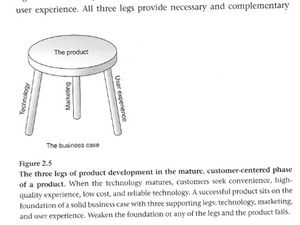Cassandra: Difference between revisions
Lucia Dossin (talk | contribs) (Created page with "{{Graduation work |Creator=Lucia Dossin |Date=2015 |Thumbnail=File:3legs.jpg |Website=www.example.com |Description=In a future not so far away, most humans were deprived from...") |
Lucia Dossin (talk | contribs) No edit summary |
||
| Line 2: | Line 2: | ||
|Creator=Lucia Dossin | |Creator=Lucia Dossin | ||
|Date=2015 | |Date=2015 | ||
|Thumbnail= | |Thumbnail=3legs.jpg | ||
|Website=www.example.com | |Website=www.example.com | ||
|Description=In a future not so far away, most humans were deprived from communicating with other humans through voice. Increased intolerance to raw subjective matters combined to a competitive labour market that practically forced every adult to work 12 to 16 hours everyday resulted in that most of human communication happened through written text messages or images using online social media services. As a side effect, the complexity of human conversation decreased to a level in which computers and people could understand each other reasonably well (an issue of Artificial Intelligence solved in an unexpectedly simple way, after many decades and much money spent on Natural Language research). Children were trained from early age to perform well in this environment. However, a parcel of the population still had the need to engage in conversation, like humans used to do 'in the good old times' (that's what they read somewhere online), using their voices. Within this group, a few actually met other humans to talk. Others did not manage to find time or energy, despite their longings. With this group of people in mind, a promising startup company launched Mina, a chat bot that was able to fulfil this need for voice interaction remarkably well. | |Description=In a future not so far away, most humans were deprived from communicating with other humans through voice. Increased intolerance to raw subjective matters combined to a competitive labour market that practically forced every adult to work 12 to 16 hours everyday resulted in that most of human communication happened through written text messages or images using online social media services. As a side effect, the complexity of human conversation decreased to a level in which computers and people could understand each other reasonably well (an issue of Artificial Intelligence solved in an unexpectedly simple way, after many decades and much money spent on Natural Language research). Children were trained from early age to perform well in this environment. However, a parcel of the population still had the need to engage in conversation, like humans used to do 'in the good old times' (that's what they read somewhere online), using their voices. Within this group, a few actually met other humans to talk. Others did not manage to find time or energy, despite their longings. With this group of people in mind, a promising startup company launched Mina, a chat bot that was able to fulfil this need for voice interaction remarkably well. | ||
}} | }} | ||
-> thumbnail is TEMPORARY (since it is mandatory to have a thumbnail for making this page, I used a temporary placeholder). | -> thumbnail is TEMPORARY (since it is mandatory to have a thumbnail for making this page, I used a temporary placeholder). | ||
Revision as of 14:23, 13 April 2015
| Cassandra | |
|---|---|
| Creator | Lucia Dossin |
| Year | 2015 |
| Bio | |
| Thumbnail | |
| Website | www.example.com |
In a future not so far away, most humans were deprived from communicating with other humans through voice. Increased intolerance to raw subjective matters combined to a competitive labour market that practically forced every adult to work 12 to 16 hours everyday resulted in that most of human communication happened through written text messages or images using online social media services. As a side effect, the complexity of human conversation decreased to a level in which computers and people could understand each other reasonably well (an issue of Artificial Intelligence solved in an unexpectedly simple way, after many decades and much money spent on Natural Language research). Children were trained from early age to perform well in this environment. However, a parcel of the population still had the need to engage in conversation, like humans used to do 'in the good old times' (that's what they read somewhere online), using their voices. Within this group, a few actually met other humans to talk. Others did not manage to find time or energy, despite their longings. With this group of people in mind, a promising startup company launched Mina, a chat bot that was able to fulfil this need for voice interaction remarkably well.
-> thumbnail is TEMPORARY (since it is mandatory to have a thumbnail for making this page, I used a temporary placeholder).

